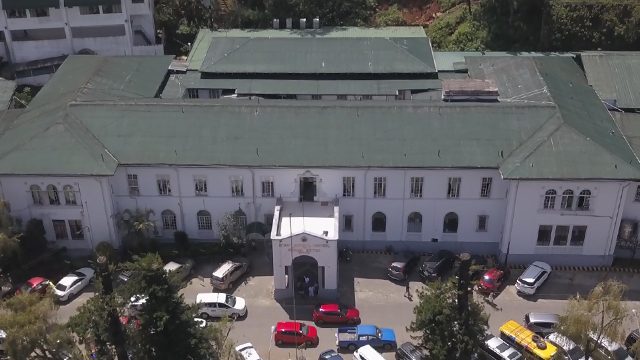SUMMARY
This is AI generated summarization, which may have errors. For context, always refer to the full article.

BAGUIO, Philippines – A nutrition coordinator of the Baguio City Health Center tested positive for the novel coronavirus – the first patient identified using the Artificial Intelligence COVID-19 Scan Analyzer at the Baguio General Hospital (BGH).
The technology, which was piloted at BGH, initially diagnosed the 52-year-old health worker as positive for the virus.
This was later confirmed by the testing of BGH, one of the subnational laboratories in the Philippines that can test novel coronavirus samples.
The health worker is also the first coronavirus patient in Baguio to divulge his identity, prodded by the city’s move to hasten contact tracing.
“We need to apply out-of-the-box solutions to fast-track contact tracing,” Baguio Mayor Benjamin Magalong said.
“The key to this is transparency,” he added. “If a person found to be COVID-19 positive issues a written undertaking that he is willing to have his name disclosed to the public in order to alert the community, then we can broadcast.”
Joel Junsay then posted about his condition on Facebook last Saturday, March 28, saying that his job as a health worker working in communities exposed him to the virus. He said his being a diabetic and hypertensive added to the risk.
He urged people who met him to go on self-quarantine and have themselves checked if they are experiencing symptoms.
The responses, gauging from the Facebook comments, are sympathetic, with some calling his move heroic. A few were cautious, saying that the public should first be educated and should not stigmatize those found to be positive for the virus.
“Instead of denouncing the patient and family, many members of the community sympathized and positively responded and went into quarantine,” Magalong said.
Because of Junsay, an elderly couple who both tested positive for the virus also divulged their identities on Sunday, March 29.
Enrique and Jaysay Bactad, both 67 years old and residents of Las Piñas City, said they were experiencing low-grade fever when they went to Baguio last March 15 for Enrique’s medical checkup here.
Both were confined in separate hotels in the city and both received reports that they were positive for COVID-19, the disease caused by the novel coronavirus, on Saturday.
Like Junsay, their relatives and other known contacts were placed under quarantine.
Because the BGH Subnational Laboratory is now certified to conduct independent testing through realtime polymerase chain reaction, testing in the Cordillera region has fast-tracked.
As of Sunday, there are now 11 confirmed cases of the novel coronavirus in Baguio.
Junsay is one of those infected through local transmission. Eight of the patients came from Manila, with most of them traveling to Baguio right after Metro Manila was placed under “enhanced community quarantine.”
Two patients came from countries with known COVID-19 cases.
The Philippines has had 1,418 confirmed cases of the coronavirus, with 71 deaths and 42 recoveries. – Rappler.com
Add a comment
How does this make you feel?
There are no comments yet. Add your comment to start the conversation.